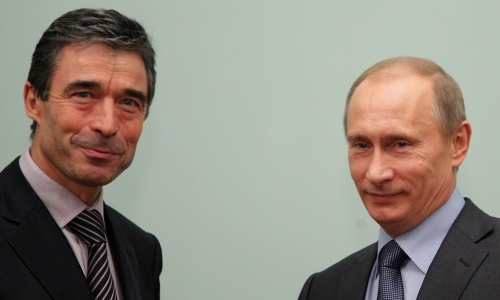
From Sergei Oznobishchev, Valdai Club: On setting up a NATO transshipment base in Ulyanovsk
The decision is important in geopolitical and strategic terms, as it bolsters Russia’s partner relations with the United States and the North Atlantic alliance. There have been ups and downs in the Russia-NATO relationship, with downs prevailing. Russia has repeatedly frozen bilateral relations with the organization for various reasons – NATO expansion (1994) and events in Georgia (2008) being two such examples.
Still, Russia and NATO regularly make real steps towards greater cooperation. It must be understood, however, that normal relations will not be established until the internal conceptual obstacles to real rapprochement are removed. The internal obstacle in the West is primarily NATO’s eastern expansion. The latest summit in Chicago again made clear that Georgia is a real candidate for NATO membership.
This fact in itself is deeply distressing to Russia’s political and expert community: not even the most stretched definition of Europe could extend to Georgia. What’s next, Libya? . . .
Politicians constantly deploy high-minded rhetoric about “U.S.-Russian partnership.” But in reality efforts are not being made to forge this partnership. Russian decision-makers have long been irritated by NATO’s activities. If the West fails to shift course – which I do believe is possible – there are no prospects for partnership. In this sense, the staging airfield in Ulyanovsk is a very important, if not unique, opportunity.
Russia agreed to cooperate with NATO on shipping non-lethal cargo to and from Afghanistan because Moscow believes that the mission of the International Security Assistance Force (ISAF) in Afghanistan is important. Russian assistance to the NATO operation in Afghanistan is largely symbolic, but it holds some significance for the future. As soon as NATO and the U.S. withdraw from Afghanistan, Russia will be left face to face with a resurgent and aggressive Taliban, which is using harsh methods to gain territory both in Afghanistan and other countries in the region. We’ve only just now begun thinking about how to counter this threat. By helping NATO in Afghanistan, we have greater reason to hope for NATO’s assistance in the future. . . .
Many experts, myself included, believe that NATO poses no threat to Russia. But a number of other experts and politicians disagree, and they can marshal numerous arguments to back them up. At times Russia’s position on NATO issues, primarily its expansion, is not taken into consideration, and this represents a political challenge. Russia’s arguments have been disregarded; there is no reaction apart from the oft-repeated claim – one we have heard for decades – that “NATO expansion poses no threat to your country.” However, if we feel threatened, this must be addressed. But nothing is being done. For the umpteenth time, they repeat the same thing, which, in my view, is not befitting true partner relations. Both sides should heed each other’s concerns. . . .
The more Russia and NATO need each other, the more they cooperate, the better.
Sergei Oznobishchev, Section Head, Institute of World Economy and International Relations of the Russian Academy of Sciences; Vice-President, Russian Political Science Association; Director, Institute for Strategic Assessments; Professor, Institute for International Relations. (photo: EPA/BGNES) (via @Kostian_V)
Image: novinite%207%2021%2012%20Rasmussen%20Putin.jpg
